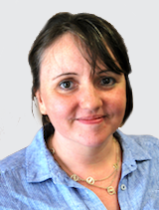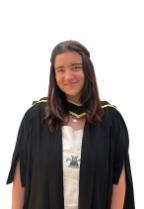The Thomson Group
Research Overview
Emerging viral infections are an ever-present threat to human and animal health, and the risk of transmission of viruses to previously unexposed populations has increased as a result of increased global travel, global warming and changes in our ecosystem and human behaviour.
We use next-generation sequencing (NGS) to detect new and emerging viruses in East and West Africa (Uganda) and engage in improving local diagnostic capacity to allow for more rapid control interventions. In March 2020 we commenced sequencing of the novel coronavirus SARS2-CoV as part of the COVID-19 Genomics UK Consortium (COG-UK).
Watch team member Dr Shirin Ashraf discuss the importance of developing new tools for virus discovery:
Current research
The Thomson lab focuses on the use of next generation sequencing and functional assays to investigate viruses that present a risk to human health in the UK and in Uganda. We work on understanding how viruses evolve under immune pressure and with the use of antiviral treatments. Working with the Clinical Trials Facility in the Queen Elizabeth University Hospital, Professor Emma Thomson is the principal investigator for NHS GG&C for several vaccine trials, including the phase III Oxford/AZ ChAdOx1 vaccine, the Novavax phase III trial, the Valneva phase III trial and the COV-BOOST and DOVE studies.
New and emerging viral infections in Uganda
Emerging viral infections are an ever-present threat to human and animal health and have often emerged from sub-Saharan Africa. The risk of transmission of viruses to previously unexposed populations has increased as a result of increased global travel, global warming and changes in our ecosystem and human behaviour. In the last 100 years, the emergence of HIV has resulted in at least 35 million deaths while more recently, Zika virus and Ebola virus caused health crises requiring major local and international interventions. Other viral infections (including unidentified infections) remain an unquantified threat to human and animal health. In order to address these risks effectively, major efforts need to be made to improve the infrastructure for identifying risks, developing treatments and vaccines and implementing these interventions in real time.
We are currently using NGS to detect new and emerging viruses in East and West Africa (Uganda) in febrile undiagnosed patients. We are also engaged in improving local diagnostic capacity in the MRC centres in these countries so that undiagnosed new or emerging infections may be detected at source in the future, allowing more rapid control interventions. The CVR provided diagnostic support for the UK response to the Ebola virus outbreak in Sierra Leone (Dr Chris Davis). These emerging viral infection projects have been funded by the MRC, Wellcome, GCRF, UK Rapid Support Team and by the Scottish Research Council.
Crimean-Congo haemorrhagic fever virus in Uganda
Saoirse is an MRC-funded first-year PhD student in the Thomson Lab. Her research focuses on emerging viruses among former bushmeat hunters in East and West Africa. Using PhIP-Seq (Phage ImmunoPrecipitation Sequencing), she analyses antibodies from these hunters to find new zoonotic viruses that may have spread to humans through wildlife contact. Recently, Saoirse visited Uganda for a sensitization trip linked to her study. She worked with Gloria Akurut from the Uganda Wildlife Authority, meeting local elders, park wardens, and reformed poachers near Bwindi Impenetrable Forest and Mgahinga National Parks. Saoirse tested a questionnaire she had designed on a small group of reformed hunters, gaining valuable data and insights for planning future research in other Ugandan parks.

New and emerging viral infections in the UK
COVID-19
In March 2020, the Thomson lab sequenced the first case of SARS-CoV-2 in Scotland and we have continued to carry out high-scale sequencing in order to monitor introductions of virus variants into the country, for example as a result of international travel. We are currently funded by HDR-UK, COG-UK and the Scottish government to monitor changes in the genome of the virus to vaccine effectiveness. Working with PHS, PHE and other partners, we are members of the Genotype2Phenotype (G2P) consortium, the UK Coronavirus Immunology Consortium (CIC) and ISARIC4C. Our role is to investigate how changes in the genome of the virus may translate to changes in the behaviour of the virus. We have also investigated a number of emerging viruses that have been detected in recent years in the Scottish population, including Ebola virus, Seoul hantavirus and MPOX, amongst others.
In this video, Patawee explains how much we can find out from one single blood sample:
Acute Hepatitis C virus (HCV)
The Thomson group has worked for a number of years on the surveillance of early hepatitis C virus infection in order to understand virus evolution during early infection and the mechanisms behind spontaneous clearance of the virus (up to 50% of infected individuals clear the virus without treatment) in order to advance the search for an effective vaccine. We follow a cohort of more than 200 patients in Glasgow and London who have been identified with early infection and who have been recruited and followed-up regularly following diagnosis. We aim to identify novel B and T cell epitopes recognised during acute HCV infection using next-generation sequencing of the entire genome and functional assays including flow cytometry, ELISpots, neutralisation assays and replicon systems. This project is funded by Wellcome.
In this video, Rajiv explains how blood samples taken from people living with Hepatitis C virus, can help us understand the diversity of the virus and how best to treat it:
Hepatitis C diversity and response to treatment in sub-Saharan Africa
While Hepatitis C is well characterised in Europe and the United States, the diversity of strains in Africa are quite different and clinical trials have not been carried out in the region. We have recently identified genotypes, rare in Europe but common in Africa that are associated with a reduced response to direct acting antiviral treatments. It will be essential to monitor response to treatment carefully in sub-Saharan Africa in order to achieve the WHO target of elimination by 2030.
Research group members
|
Emma Thomson |
Shirin Ashraf |
Chris Davis |
Paula Olmo |
|
|
Saoirse Healy |
Rajiv Shah |
James Shepherd |
Marina Kugler |
|
|
Patawee Asamaphan
|
Elen Vink |
Andrew Stevenson |
|
Visiting Students
Stella Atim - Makerere University
Lucrece Y J Ahovegbe - Mbarara University of Science & Technology
Martin Mayanja - Uganda Virus Research Institute
Prossy Namuwulya – Uganda Virus Research Institute
Alfred Ssekagiri - Uganda Virus Research Institute
PhD ALUMNI
- Dr Stella Atim, postdoctoral fellow Stanford University and LSHTM planetary health fellow (MUII/Wellcome PhD fellow)
- Dr Marc Niebel, senior bioinformatician & clinical scientist, Regional Virology Laboratory Belfast (MRC PhD fellow)
- Dr James Shepherd, postdoctoral academic fellow and registrar in infectious diseases NHS GG&C (MRC clinical fellow)
- Dr Weronika Witkowska, LumiraDx, Hamilton, UK (MRC PhD fellow)
- Dr Naomi Bulteel, consultant in infectious diseases Edinburgh (MRC clinical fellow)
- Dr Sultan Al Otaibi, Lead for Microbiology, King Fahad Medical City University Hospital (Saudi PhD felowship)
- Dr Tamer Abdelrahman, Head of the Laboratoire National de Santé, (LNS) Luxembourg (MRC clinical fellow)
- Martin Mayanja, joint fellow with UVRI (MUII/Wellcome PhD fellow)
- Rajiv Shah, MRC clinical fellowship (MRC clinical fellow)
- Elen Vink (MRC clinical PhD fellow)
PhD in progress
- Marina Kugler (Wellcome PhD fellow)
- Saoirse Healy (MRC-funded student)
- Leah Owen (MRC clinical fellow)
Collaborators
- Dr Weronika Witkowska - Research Assistant (Biomedical Engineering) – James Watt School of Engineering
- Professor Jon Cooper - (Biomedical Engineering) – James Watt School of Engineering
- Professor Pontiano Kaleebu – Uganda Virus Research Institute
- Professor Ponsiano Ocama – Makerere University
- Professor Tess Lambe – University of Oxford
- Professor Miles Carroll – University of Oxford, PHE Porton Down
- Professor Tamyo Mbisa – PHE Colindale
- Professor Matt Holden – PHS
- Professor Surajit Ray – University of Glasgow
- Dr David Pascall – MRC Biostatistics Unit, University of Cambridge
- Dr John Haughney – Clinical Research Facility, QEUH hospital












